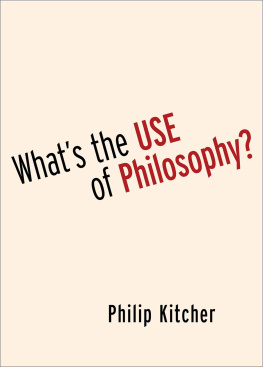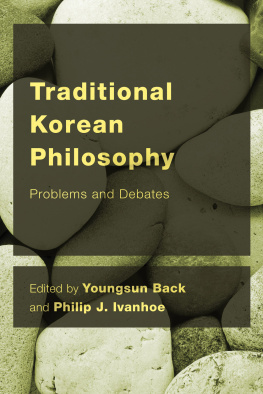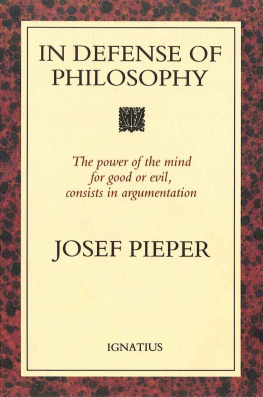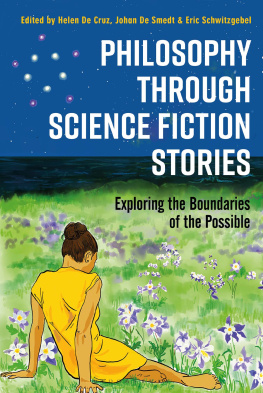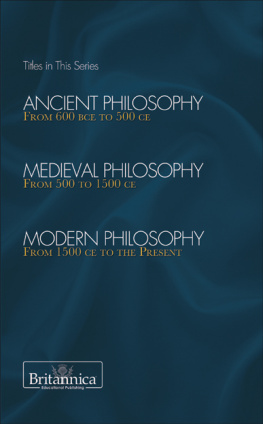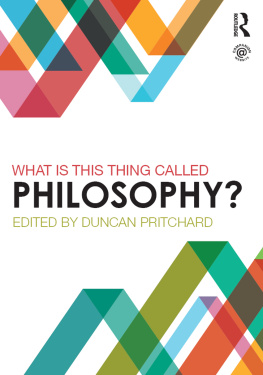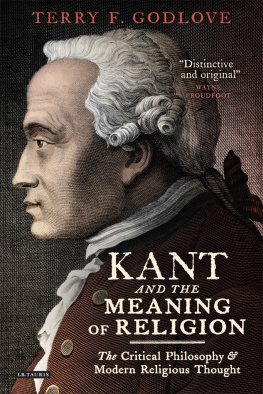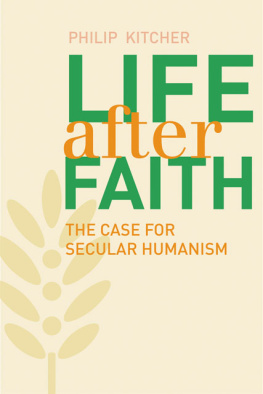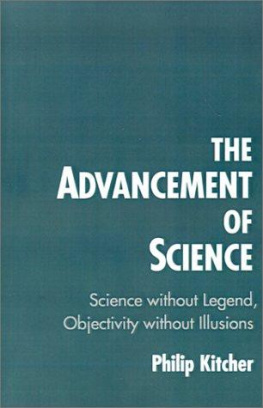Whats the Use of Philosophy?

Oxford University Press is a department of the University of Oxford. It furthers the Universitys objective of excellence in research, scholarship, and education by publishing worldwide. Oxford is a registered trade mark of Oxford University Press in the UK and certain other countries.
Published in the United States of America by Oxford University Press
198 Madison Avenue, New York, NY 10016, United States of America.
Oxford University Press 2023
All rights reserved. No part of this publication may be reproduced, stored in a retrieval system, or transmitted, in any form or by any means, without the prior permission in writing of Oxford University Press, or as expressly permitted by law, by license, or under terms agreed with the appropriate reproduction rights organization. Inquiries concerning reproduction outside the scope of the above should be sent to the Rights Department, Oxford University Press, at the address above.
You must not circulate this work in any other form and you must impose this same condition on any acquirer.
Library of Congress Cataloging-in-Publication Data
Names: Kitcher, Philip, 1947 author.
Title: Whats the use of philosophy? / Philip Kitcher.
Description: New York, NY, United States of America :
Oxford University Press, [2023] |
Includes bibliographical references and index. |
Identifiers: LCCN 2022040696 (print) | LCCN 2022040697 (ebook) |
ISBN 9780197657249 (h/b) | ISBN 9780197657263 (epub) |
ISBN 9780197657270
Subjects: LCSH: PhilosophyIntroductions.
Classification: LCC B103 .K58 2023 (print) | LCC B103 (ebook) |
DDC 100dc23/eng/20220922
LC record available at https://lccn.loc.gov/2022040696
LC ebook record available at https://lccn.loc.gov/2022040697
DOI: 10.1093/oso/9780197657249.001.0001
To the wonderful graduate students
whom I have had the privilege of teaching
and for all the others
who once fell in love with philosophy
and who would like the relationship
to stay that way
Contents
Occasionally, the question posed in my title is asked as if the questioner eagerly expected an answer. For the most part, however, the speakers toneheavily emphatic on the use and the philosophysuggests something quite different. That the question is unanswerable. Because, as everybody knows, philosophy is utterly useless.
For the past twenty years or so, I have been brooding about the question. The usual dismissive tone is, I believe, readily understandable. It stems from the remoteness of philosophy from the rest of contemporary culture. Philosophers appear to outsiders as peculiar beings, perhaps highly intelligent but with bizarre tastes in the ways they spend their work time. They labor over questions without answering them, spend hours in heated debates about very little (if anything), criticize one another with peculiar, and often distasteful, ferocity. Their employers, mostly colleges and universities, pay them for engaging in their pointless jousts. But even their colleagues, who teach and do research in other academic disciplines, seem to agree with the general judgment that their activities are incomprehensible.
During the early years of this century, I became more and more convinced that this worrying attitude was common enough to deserve attention. The Humanities rarely receive much respect in the English-speaking world. Philosophy is usually assigned to this low-status division, but it is almost always cut off from its fellow orphans. Once, of course, philosophers were avidly read by excited members of the public. Their works were treasured as sources of life-changing transitions in allegiances and attitudes. Not anymore. Even in the days when there were local bookshops, the philosophy section was typically stocked with works few Anglophone philosophers would recognize as contributions to their discipline. What has happened to philosophy?
I began to focus my unease about this situation when Armen Marsoobian, the editor of Metaphilosophy, invited me to a conference in London to celebrate the fortieth anniversary of the journal. Four speakers, of whom I was one, presented their perspectives on the state of the subject. My contribution was the first draft of in this volume, later revised and published with the other papers in an issue of Metaphilosophy. That issue did not include any parts of the lively panel discussion.
I had expected criticism, even hostility, and I received some of the former; I dont recall any of the latter (perhaps repression has done its impressive work). But I was also surprised by a fair amount of sympathy for my heterodox position. Besides that, what remains in my memory is a vigorous debate with Timothy Williamson (surely one of the most distinguished philosophers of his generation.) It was conducted in that wonderful spirit of old-fashioned disagreement that used to be a characteristically British style of intellectual exchange. No quarter given, but everyone goes off happily to the pub afterward. In this instance, we retired to an excellent dinner.
Reactions to the published article convinced me that I was far from alone in worrying about the current state of Anglophone philosophy. Before long, Rob Tempio, philosophy editor for Princeton University Press, had written to me with the suggestion that I expand the article as a short book. I mentioned that possibility to Peter Ohlin, my long-time editor at Oxford University Press, and someone I count as a friend. Peter, too, thought this was a good suggestion, although, like me, he was concerned about poaching another editors bright idea. In any event, the issue was moot. I did not feel ready to write a book in this area.
A few years later, Stefan Hartmann and Michela Massimi invited me to give a keynote address at the meeting of the European Society for the Philosophy of Science (later published in the European Journal for the Philosophy of Science). I accepted with alacrity. Wishing to develop my approach further, I wrote a preliminary version of . When I delivered it at the conference, I was again pleasantly surprised by a sense that what I had said had resonated with at least some parts of the large audience. The discussion opened with a question that has occupied me ever since. It was posed by a young woman whose name I do not know. She began by saying that she was sympathetic to the approach I had takenbut she wondered how people like herself, starting out on their philosophical careers, could pursue something of that sort in a profession whose priorities ran counter to the kinds of philosophy I commended.
Similar reactions greeted the John Dewey Lecture I delivered (via Zoom) to the 2021 meeting of the Eastern Division of the American Philosophical Association (subsequently published in the Proceedings of the Association). Both during the discussion immediately following my presentation, and in emails I received during the next few days, younger philosophers again pressed me on how they might actually pursue the kinds of philosophy that appealed to themwithout ruining their careers. I tried to respond, always with a definite feeling that what I was saying was inadequate.
It seemed, then, that the time had come to attempt to develop my thoughts further, to combine and integrate the sometimes scattered pieces of the three lectures, to supplement them with further material to make some of my negative and positive points clearer, and to address more systematically the worry that, at least for younger philosophers, following anything like the course I described would be suicidal.

